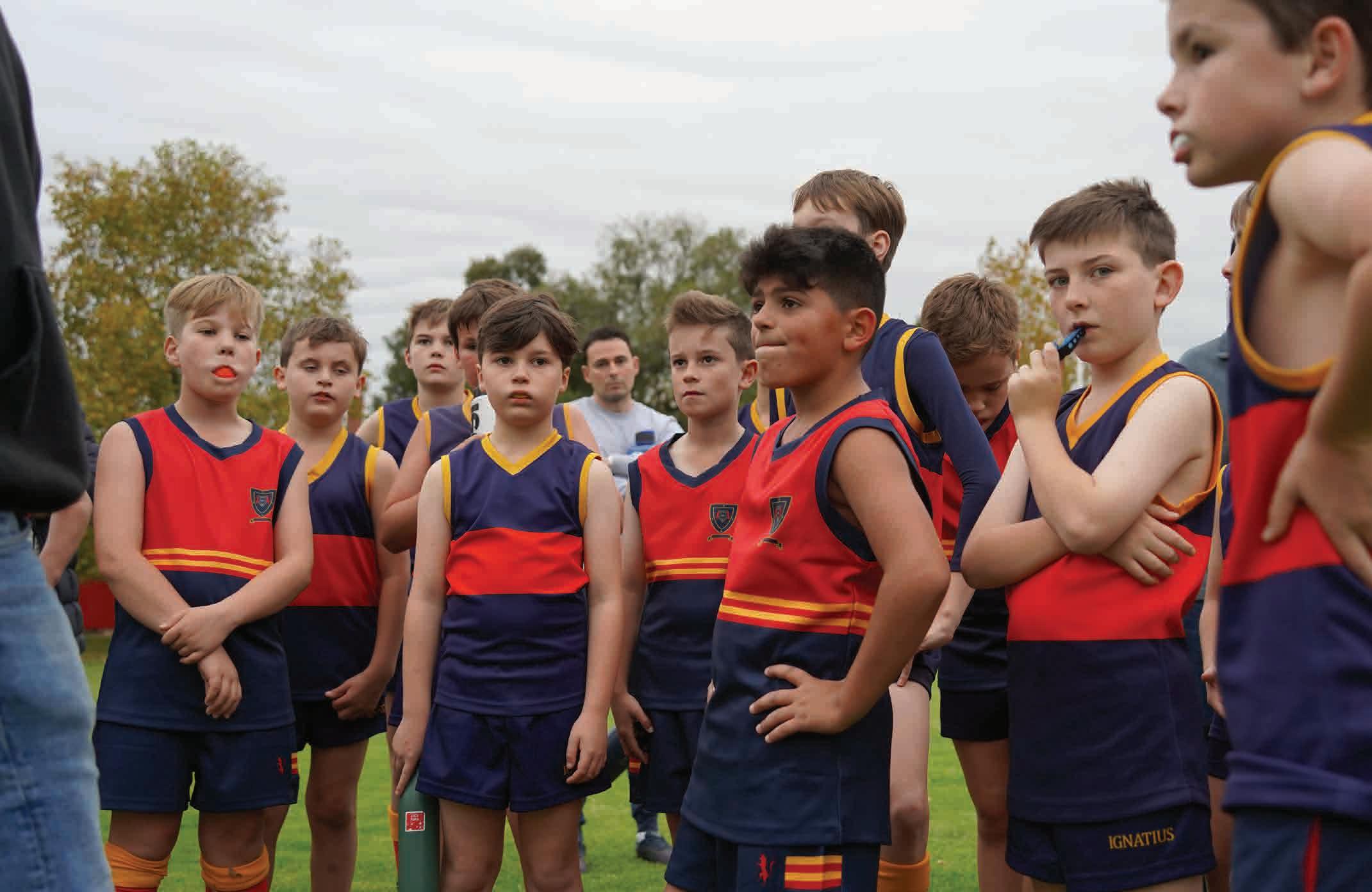
3 minute read
Shaping character through co-curricular
JESSICA MORRISH (CLASS OF 2006) HEAD OF CO-CURRICULAR
The value of co-curricular activities, both artistic and sporting in nature, for shaping character has long been established. In recent times, however, questions are being asked of the nature of this development, particularly as it relates to character, values, and emotions. Opstoel et al. (2019, p799) state that “simply participating in … sports does not automatically lead to positive outcomes” and, similarly, from the artistic perspective, Welch et al. (2020 p3), after systematically reviewing the benefits of involvement in and with music, qualify this with “the caveat provided that such musical experiences are perceived to be engaging, meaningful and successful by those who participate”.
Advertisement
Therefore, rather than assuming that merely facilitating the participation of our young people in these activities will result in positive formation, we must strive collectively as a College community towards this end. With our College ethos and virtues to guide us and the commitment to co-curricular as a core contributor to student formation, we are well placed as a community to ensure that character development through our arts, activities, and sports is positive, meaningful, and transferable.
How we respond to the myriad experiences enjoyed by our young people in co-curricular shapes their formation, as a result of these experiences. Flanagan (2022) reminds us that “with the right leadership, sports also can invite other moral virtues, including appreciation for an opponent’s skill, toleration for a weaker player’s mistakes, and respect for an imperfect referee. This … builds empathy: children learn that their emotions, no matter how passionate, are not paramount—that others’ feelings and experiences are equally valid.”
These same concepts apply to the specific contexts of arts and activities involvement also. Equipping our young people with the skills to celebrate their successes and work through the disappointments provides the character and emotional and social development that we desire.
Unwavering support of our young people does not mean removing the challenges and disappointments they face; rather, it means remaining consistent, present, and loving through those obstacles and disappointments. Here, I offer some suggestions as to how we can shape our responses towards growth in empathy, resilience, commitment, and awareness of self and others.
When a young person or team experience a disappointment, setback, or other challenge:
1. Validate their feelings. It is reasonable and okay to experience the disappointment, to be upset. Our young people need to know this, and they need to know that you are there for them through it.
2. Guide their response. Consider what a values- and strengths-based response looks like for this young person. Help them find appropriate ways to process the disappointment while responding helpfully and respectfully to others. This might look like guiding them to seek feedback or congratulating those who experienced success.
3. Focus on the ‘controllables’. Help the young person to identify what is within their control and to focus their energy towards those things. They can control their response, their behaviours, and where they direct their effort moving forward.
4. Look forward. Disappointments often become the most valuable opportunities for growth. This is not a mere platitude, but a lived experience when we use what was learned to set goals for moving forward. Empower the young person to determine how they want to grow out of the experience.
Similarly, when a young person or team experience success, our response is equally important:
1. Celebrate well. Acknowledge the achievement, but more importantly, celebrate the effort and commitment that were required to get there.
2. Build empathy. Guide the young person towards recognising the experiences of others, particularly those who are disappointed, and how to respond appropriately. Empathy towards others does not mean downplaying or not being able to celebrate one’s own success, but it does mean being conscious of those not able to share the experience in the same way.
3. Look forward. There are always more opportunities for growth. How can this success be a launching pad for future development?
It is up to all of us (parents, teachers, coaches, and peers) as leaders and influencers in the co-curricular space to shape this positive character growth. How we communicate in the car rides, the comments we make on the sidelines and at training sessions, and the general conversations we have about co-curricular all matter. Consistent, intentional, and modelled values from all involved will shape a co-curricular culture that achieves positive, holistic student formation.
References
Flanagan L (25 August 2022) Do youth sports really build character? What kids gain from sports depends on adults, KQED, accessed 15 February 2023. Opstoel K, Chapelle L, Prins FJ, De Meester A, Haerens L, van Tartwijk J and De Martelaer K (2020) ‘Personal and social development in physical education and sports: A review study’, European Physical Education Review, 26(4) accessed 15 February 2023.
Welch GF, Biasutti M, MacRitchie J, McPherson GE and Himonides E (2020) Editorial: The Impact of Music on Human Development and Well-Being [PDF], Frontiers Psychology, 11, accessed 15 February 2023.










